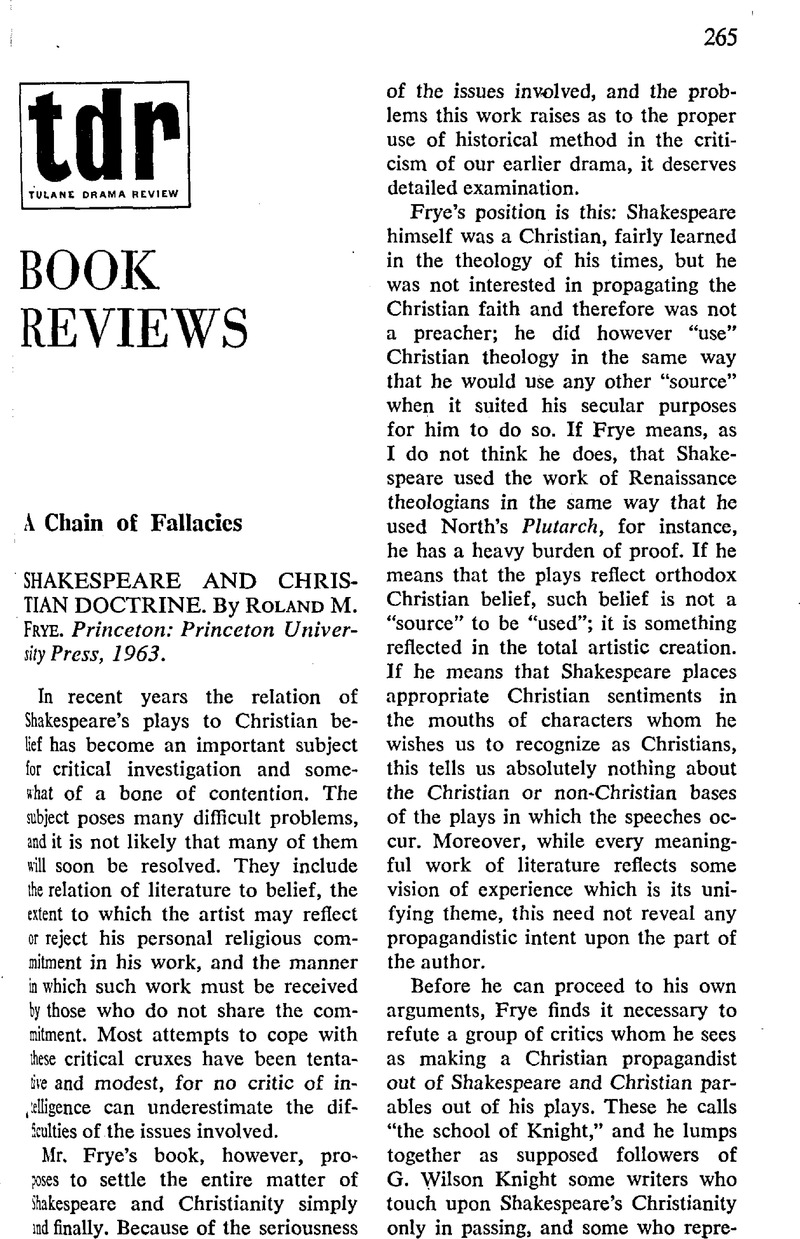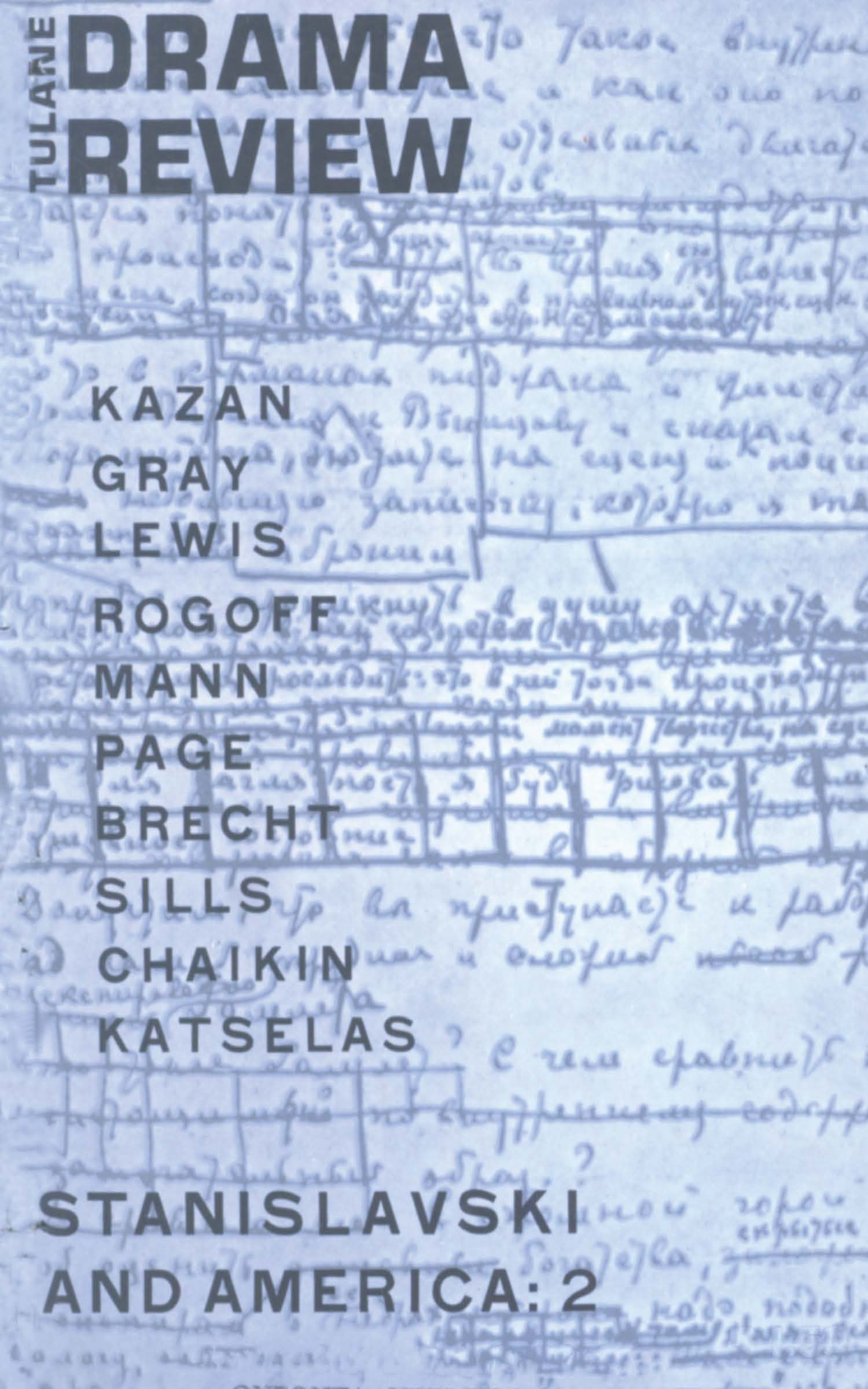No CrossRef data available.
Article contents
Shakespeare and Christian Doctrine. By Roland M. Frye. Princeton: Princeton Univerity Press, 1963.
Published online by Cambridge University Press: 23 November 2021
Abstract

- Type
- Book Reviews
- Information
- Copyright
- Copyright © The Tulane Drama Review 1966
References
1 G. Wilson Knight is the most maligned of the critics in Frye's book. Not only is he quoted inaccurately and out of context, but Frye reveals no understanding of the distinctions between the symbolic and the literal, the temporal and the spatial, which are so crucial to Knight's method of interpretation. Knight has himself protested against Frye's obvious distortion of his work in “Shakespeare and Theology: A Private Protest,” Essays in Criticism, XV (1965), 94-104.
2 Coghill's argument may be more conveniently found in “The Basis of Shakespearian Comedy,” Essays & Studies, III (1950), 1-28, than in the obscure Viennese publication, Shakespeare Quarterly I (1947), which Frye cites.
3 London: Methuen, 1960, pp. 91-115.
4 This has been argued at most length by Spivack, Bernard, Shakespeare and the Allegory of Evil (New York: Columbia University Press, 1958)Google Scholar
5 Hooker's considerable influence on Shakespeare, however, has been argued by Whitaker, Virgil K., Shakespeare's Use of Learning (San Marino, Calif.: Huntington Library, 1953)Google Scholar, which Frye dismisses with a brief note (p. 15).
6 See Hippolyta's View (Lexington, Ky.: University of Kentucky Press, 1961).Google Scholar My own reaction to Bryant's views has been presented in some detail in JEGP, LXI (1962), 172-76.
7 Shakespeare's Tragedies and Other Studies in Seventeenth Century Drama (London: Chatto and Windus, 1950), p. 18. Other important critics who have taken a similar position include Geoffrey Bush, Shakespeare and the Natural Condition (Cambridge, Mass.: Harvard University Press, 1956) and Sewell, Arthur , Character and Society in Shakespeare (Oxford: Clarendon Press, 1951).Google Scholar




